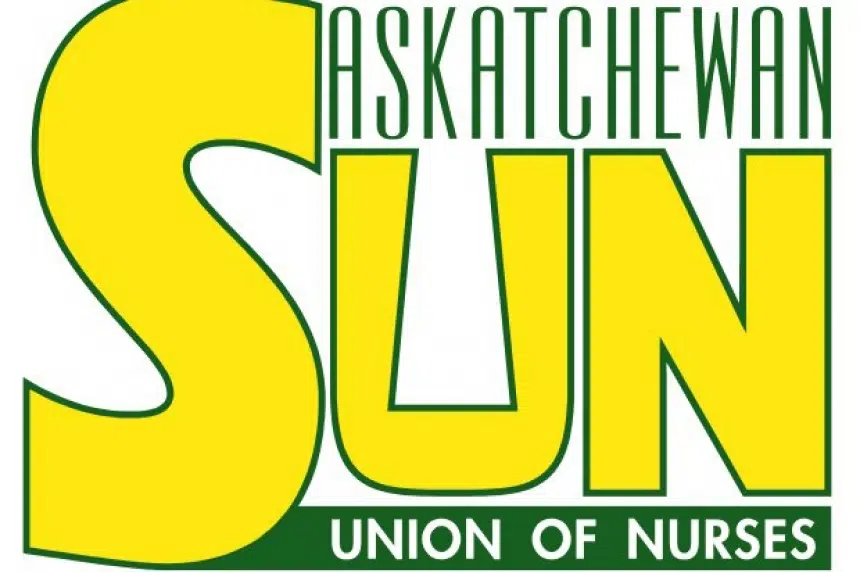The head of the Saskatchewan Union of Nurses (SUN) claims that personal protective equipment, or PPE, is being rationed and that access to information nurses need is also in short supply.
PPE is in huge demand everywhere as COVID-19 numbers rise. The equipment is worn by frontline medical personnel — things like masks, shields, gloves and gowns. Nurses say normal protocol would be to change PPE between every infectious or potentially infectious patient.
When the question was put directly to the Saskatchewan Health Authority’s (SHA) chief medical officer, Dr. Susan Shaw, she flatly denied any rationing.
“The answer to that is no we’re not,” she said. “We’re taking a lot of steps to make sure we understand what is the best use of our personal protective equipment, where is it most appropriately stocked and how do we ensure that we continue to have the right amount of equipment to ensure our staff are safe.
“The most important thing there is to, again, to cycle back to the importance of the work of the public to help flatten the curve, and us as health-care professionals understanding what is the right use of PPE and for what situations and using it as appropriately as possible.”
But SUN president Tracy Zambory flatly contradicts that.
“Well, there is rationing going on. There is,” she said. “I’ve heard from members in busy emergency rooms in this province that they’re being told to keep it at two masks per shift.
“I just got another message from another in a northern hospital that members are being told that the masks are locked and they have to ask permission and they get to have two and they’re worried of discipline if they require more than two masks. So yes, it is happening.”
The SHA has since been quoted in a statement that a two-mask protocol was put in place at an emergency room in Regina, but that it was a local directive, not a provincial order.
Zambory also says home-care workers are reporting that in some cases, the number of disinfectant wipes they can use as they go from home to home is being limited.
“We were told by our members that work in home care (that) they’re being rationed down to three of these specific wipes and they’re doling them out in zip-lock baggies,” she said.
Zambory claims such restrictions only began with the arrival of COVID-19.
“We certainly were not seeing this before COVID-19,” she said. “When an N-95 mask was required by the standards set out, there was no question — it was used. Because of what we see as a lack of preparedness, now we find ourselves in this situation.
“But then further to that, we’ve got to put that aside now. We’re in it now, we’re in the real time and we need to work together more to understand what’s going on.”
But Zambory contends nurses are frustrated because they aren’t being given important information. She says a worst-case scenario model that was leaked last month wasn’t shared with health-care workers.
Aside from potential numbers of infections and mortality, it also outlined how measures like setting up field hospitals or care centres would happen.
“Rather than sharing that with us, like they had promised they would do, now it’s being called more of a fluid plan that is conceptual so that it’s difficult now to share it with the unions,” Zambory said.
“They should be sharing the plans with the people that they expect to do the care, of what their world’s going to look like.”
Premier Scott Moe has indicated the latest plan and modelling data will be released this week.
The questions about planning and access to PPE come as Zambory says more health-care workers are testing positive. But she contends the province won’t say who they are or what union they belong to so the union can look into why it is that’s happening. And she insists that information is a fair thing to ask for.
Still, even with numbers rising each day, Zambory believes the situation in hospitals is not approaching any worst-case scenarios.
“The situation is starting to escalate, there’s no doubt about it,” she said. “In hospitals right now, so far, according to my members, it’s manageable. It’s busy, but it’s manageable.”
However, she sees increasing concern about access to PPE and information as the situation does escalate.
“People that are working in the testing sites, they’re very busy, they’re seeing people that are sicker and sicker every day,” Zambory said. “They worry about the fact that they’re only given surgical masks when people are coughing and everything else when they’re coming through to be tested.
“We have now assessment sites that are going to start popping up to keep people out of the emergency rooms but we’ve not really been given any guidelines on what’s going to happen in these test centres, who’s going to manage what, what is the model of care that’s going to happen there, who’s going to be caring for what (and) who’s going to be doing what when.”
That’s why Zambory stresses it’s so important everyone heed the message being repeated continually.
“We need people to social distance, to stay at home,” she said. “Registered nurses are there for you. Please, give us a fighting chance and stay at home. We need you to do that for us.”











